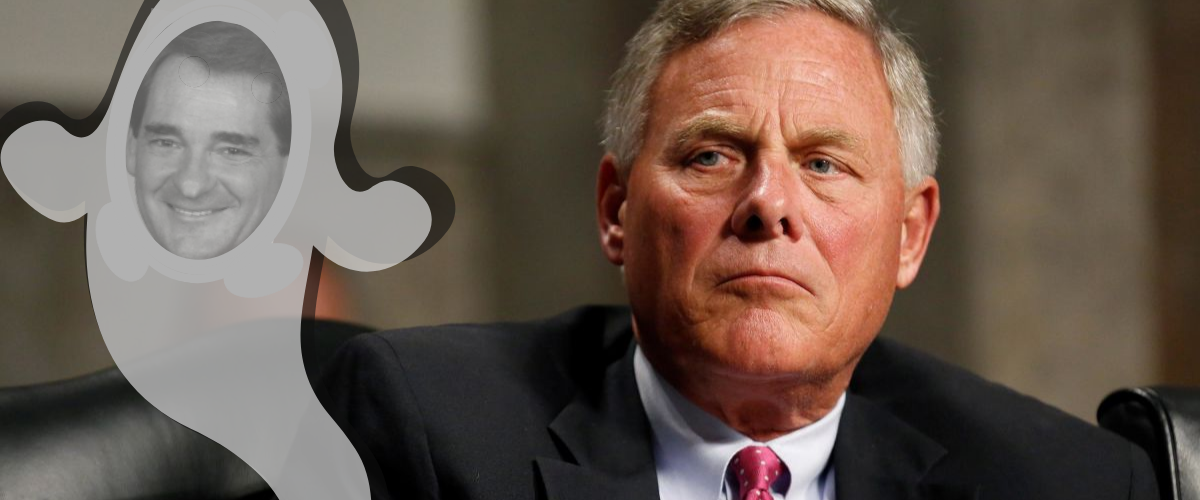These are unique times we’re living in, so before I criticize this guy for his Big Pharma love, I feel compelled to hand him a well-earned compliment: Senator Richard Burr (R-NC) acted heroically in voting to impeach former President Trump in the wake of the violent January 6th assault on Congress. Whether or not you agree with Burr’s vote, history shows politicians rarely cross the aisle to impeach someone in their own party. Senator Burr’s vote was courageous. I stand by that even though he decided not to run for re-election in 2022.
People (like me) often accuse politicians of carrying water for Big Pharma so that they will receive large campaign contributions from the industry. During Sen. Burr’s last campaign in 2016, he received over $200,000 in campaign contributions from drug companies. These contributions contributed to him receiving an F grade on drug prices on the Prescription Justice Congressional Report Card. Even though he is not facing an election in 2022, Sen. Burr continues to espouse public policy beliefs and talking points of the multinational pharmaceutical industry. So maybe he is genuinely a believer in the pharmaceutical industry being able to charge anything it wants for life-saving medications because that’s the business model supposedly supporting wonderful advances in biomedical research. Maybe.
I read in STAT News that during the Senate Committee Health, Education, Labor and Pensions (HELP) hearing dedicated to questioning California AG Xavier Becerra, President Biden’s nominee for Secretary of the Department of Health and Human Services, Sen. Burr, the ranking member, was strongly critical of Becerra. Specifically, Burr went after Becerra for supporting an interpretation of the Bayh-Dole Act that would allow the government to override a patent on a drug developed with U.S. taxpayer funding viewed to be exorbitantly priced and allow the manufacture of lower-cost generic versions:
“American innovation and ingenuity are rescuing us from the devastation of a global pandemic…Your actions as attorney general for California and your tenure in Congress reveal somewhat of a disregard for the value of this ingenuity, calling for policies that undo decades of investment in and support of Americans’ biomedical research.”
Apparently, Sen. Burr believes that drugs developed with our money should still be priced out of our reach. Or maybe he’s looking at his exit strategy and thinks that continuing to drink the Kool-Aid will pay off. That’s where the ghost of former Congressman, Rep. Billy Tauzin (R-LA) emerges.
In 2003, Rep. Tauzin, Chairman of the House Committee on Energy and Commerce was instrumental in shepherding the Medicare Prescription Drug, Improvement and Modernization Act of 2003 (MMA). The MMA was a huge boon for the pharmaceutical industry, which lobbied like crazy to get what it wanted in the bill. Yes, the MMA introduced Part D of Medicare, pharmacy benefits for older Americans. However, it also stuck taxpayers with the bill while continuing to require painful out-of-pocket spending by people on Medicare. Infamously, it created a ban on Medicare negotiation of drug prices. Right after the bill passed, Tauzin left Congress to become executive director of the Pharmaceutical Researchers and Manufacturers of America for an annual salary of $2 million! It remains the quintessential example of a perverse revolving door from government to big industry.
And that brings us back to Senator Burr. One of the complaints among some Republicans on the HELP committee about Becerra is that he’s a lawyer, not a doctor. One of them even said that a lawyer running HHS is like a doctor running the Department of Justice. [I won’t digress on the obtusity of that analogy.] Burr actually juxtaposed Becerra’s experience as weak compared to the “extensive career in the pharmaceutical sector” of Alex Azar, who was president of Eli Lilly USA before becoming Trump’s HHS Secretary. Azar is a lawyer, too!
I can tell you this: it should be illegal for Sen. Burr to work in any way for the pharmaceutical industry for (at the very least) five years after leaving office. He will have lobbying restrictions under federal law, but they do not prevent him from working for Big Pharma when he leaves office. We’ll just have to see.
Whatever happens, Burr will be remembered for that vote to impeach Trump. But here’s a political twist: It’s politicians just like Burr who turned voters against “moderate” Republicans and blindly embrace the nationalist and populist Trump. Burr believes in democracy and capitalism, but wrongly views the needs of multinational corporations as central to America’s success, to the detriment of the majority of citizens. His faith in Big Pharma personifies that troubling reality.



